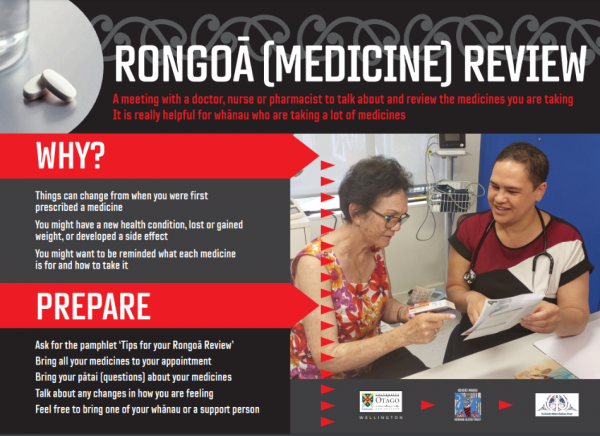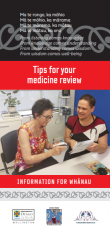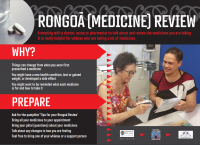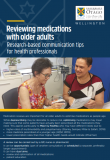
Image credit: University of Otago, NZ
A medicine review is a review of all the medicines you're taking. This includes:
- prescription medicines
- over-the-counter medicines
- supplements or natural remedies
- rongoā Māori.
It involves meeting with a doctor, nurse or pharmacist to talk about all of your medicines. This information is used to check that you're taking the most appropriate medicines and that you know how to take them safely. You will also have the opportunity to ask questions about your medicines and talk about any concerns you have. It's a good idea to have your medicines reviewed every year.
During your appointment your healthcare provider can help you to create a medicine list, or if you already have a medicine list they can check it and make sure it's up-to-date. Read more about medicine lists.



 Patient printable resource – Tips for your medicine review
Patient printable resource – Tips for your medicine review 

